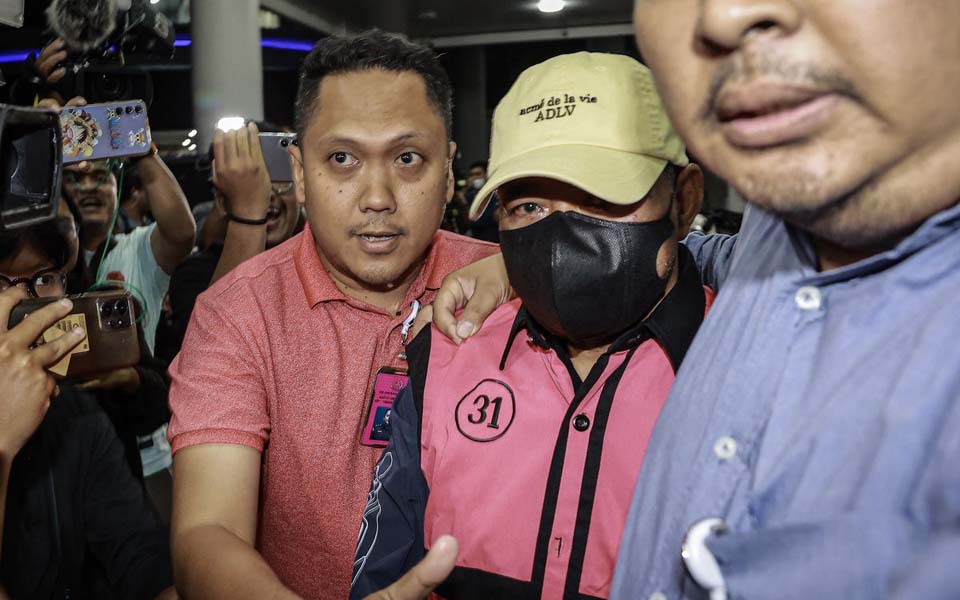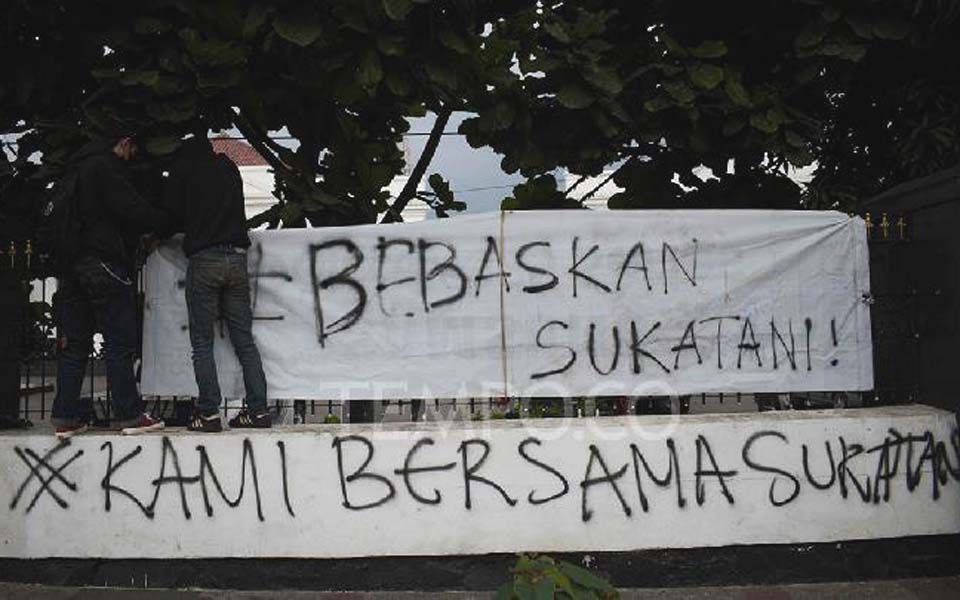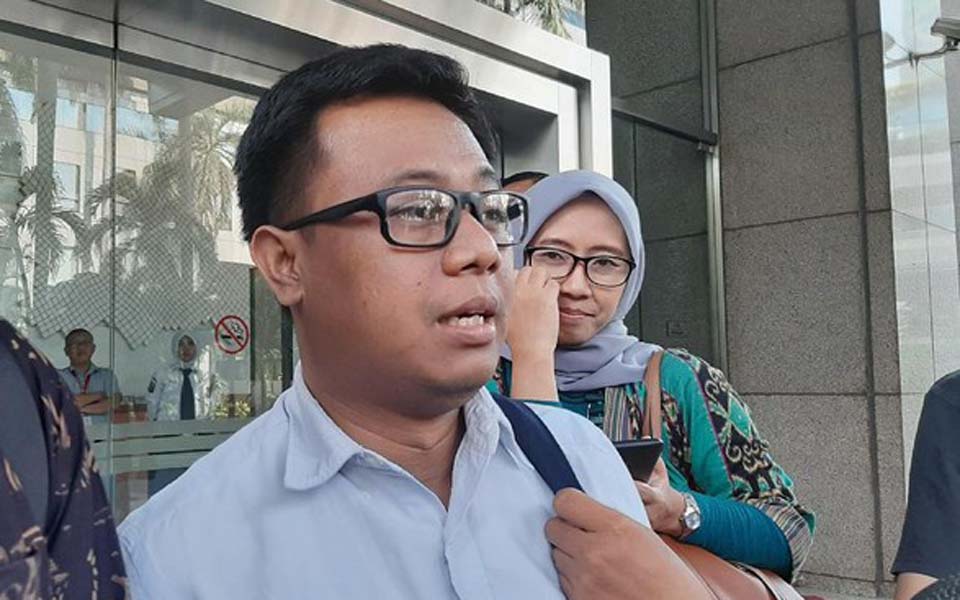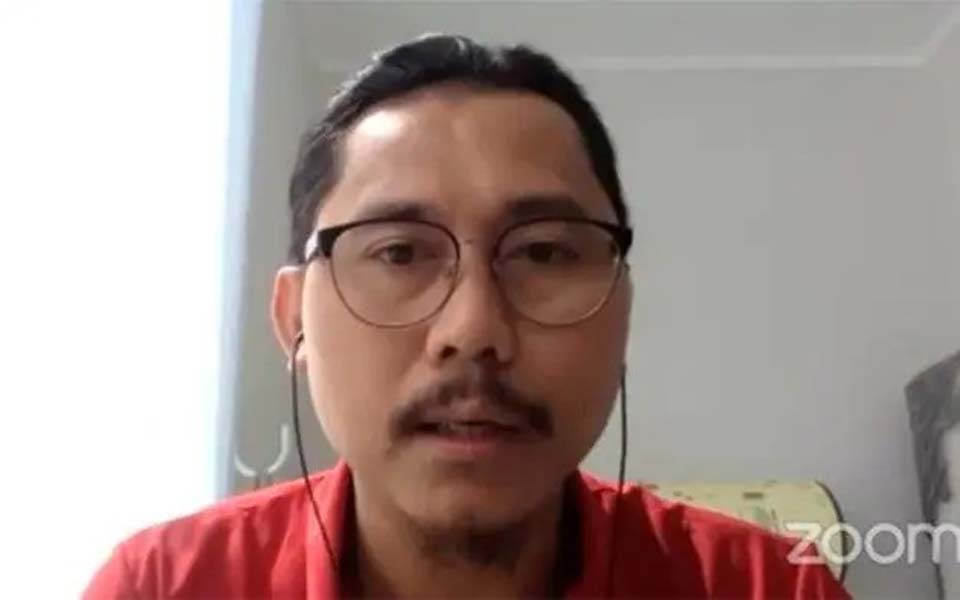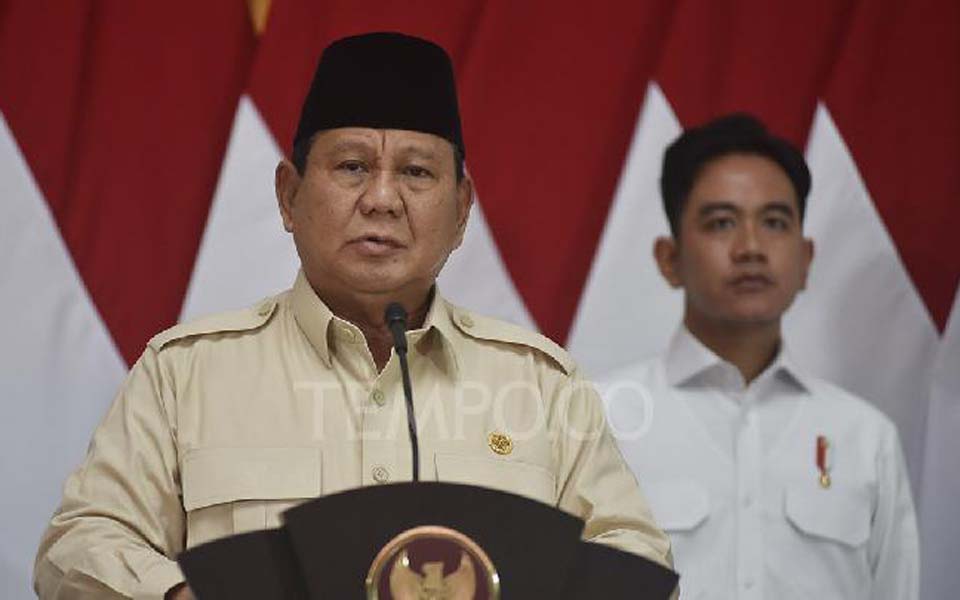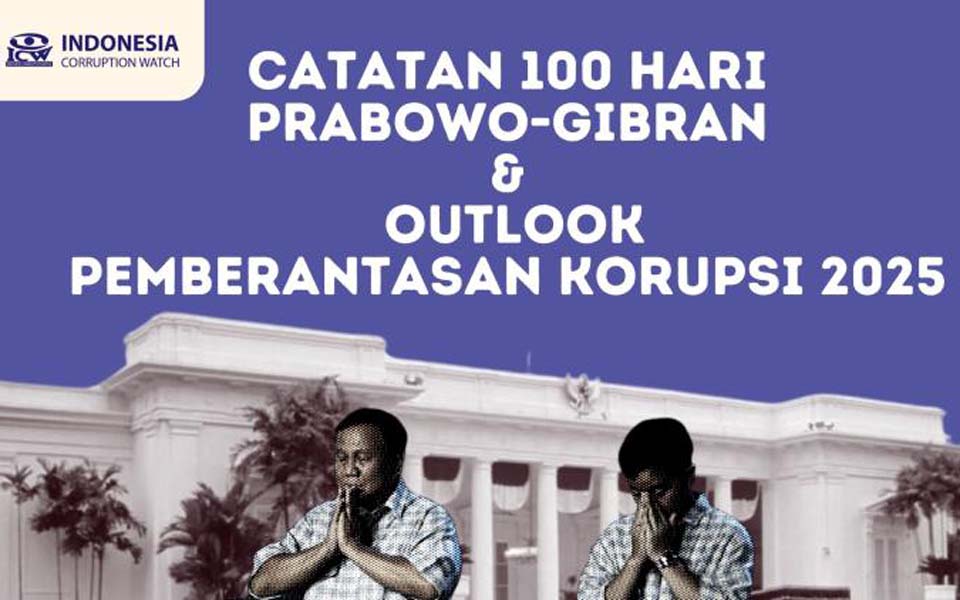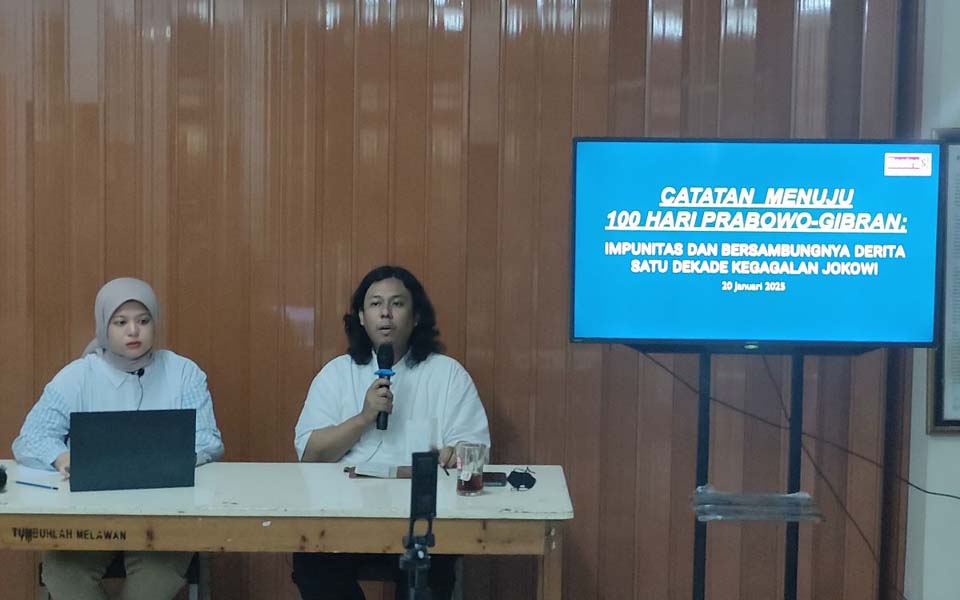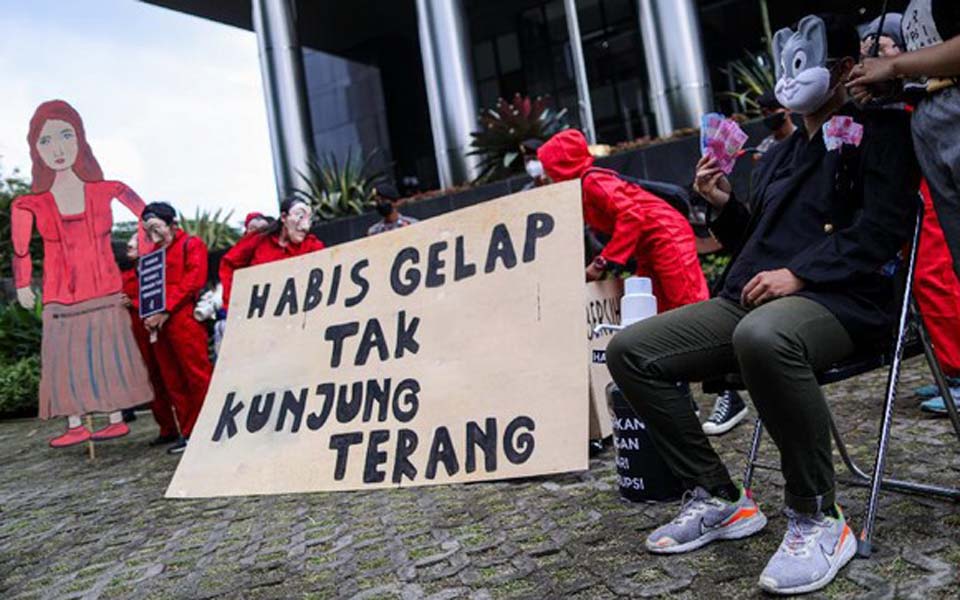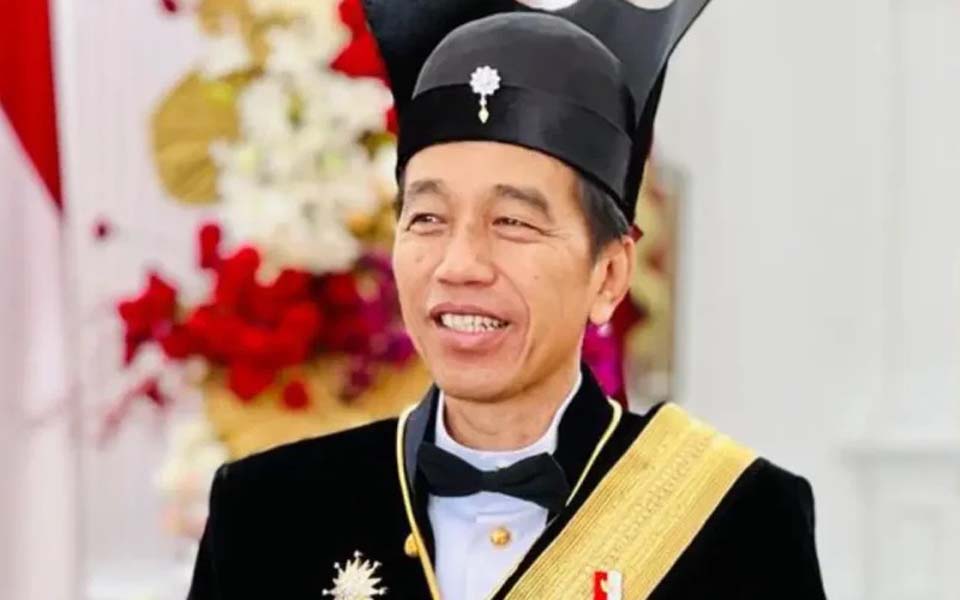Gita Irawan, Jakarta – Indonesian Institute of Science (LIPI) researcher for political affairs, Professor Syamsuddin Haris, is concerned that there is a plot to “tame” the Corruption Eradication Commission (KPK) through the selection of new batch of KPK leaders for 2019.
Haris said that that the initial spark for the formation of the KPK was an effort to uphold clean governance and eradicate corruption, collusion and nepotism (KKN) as a consequence of the inability or failure of the police and Attorney General’s Office to carry out their duties and responsibilities related to corruption.
“So for me it is odd if then the police as an institution is busying grooming its members to become KPK capim [candidate leaders] because the potential for a conflict of interests to emerge is very high”, said Haris during a discussion at the Indonesia Corruption Watch offices in South Jakarta on Friday July 5.
He is also of the view that if the next KPK leadership is controlled by active police officers who then retire after being selected as KPK leaders then the KPK will be coopted by the police.
“The other word for coopted is to take control. And if it is taken control of then of course the plot to tame the KPK will have succeeded”, said Haris.
Haris is also of the view that if police generals are later selected as leaders of the KPK, like or not they must of course resign because no matter what a position in the KPK is a public position which necessitates that active senor police officers resign.
“I don’t know how far exactly the national police leadership has been assigning their subordinates to become, let’s say one of the KPK leaders. I’m of the view that if the situation is like this, the KPK should actually be disbanded. Because no matter what, the key lies with an independent leadership, KPK commissioners have to confront the institutions of government and the state regardless, including the national police”, said Haris.
In addition to this, he is also concerned about the final stage of the selection process at the House of Representatives (DPR) Commission III baring in mind that this is the most decisive stage.
“In the case of the DPR’s Commission III, our representatives in Senayan [the parliament] they also have a desire to tame the KPK, bearing in mind that many of their friends who were OTTed [caught in sting operations] have been jailed, yes and that will be it. Our KPK will be finished”, said Haris.
Haris’ concerns arose because he suspects that the 2019 candidate KPK leaders will be selected by members of the DPR’s Commission III, which is comprised of legislators who were elected in 2014.
This concern he points out is because the DPR members on Commission III have a strong desire to tame the KPK bearing in mind that many of the sting operations and corruption cases have involved members of the DPR for that period.
“So we will indeed still have to wait. This is the [first] stage right and it’s still quite long, although it is very possible that the KPK capim for 2019 will be determined by a DPR that came out of the 2014 pemilu [elections]. If we go with the DPR resulting from the 2014 pemilu, the desire to make the KPK more tame is very high right”, said Haris.
According to Haris, civil society organisations including the mass media need to strongly oppose efforts to tame the KPK.
“It’s this kind of mind set that we must reject. We means the various elements of civil society, including you in the media. So we must reject any and all efforts to tame the KPK through the intense involvement of the police in the selection of KPK capim”, said Haris.
Notes
In January 2015 the national police launched a witch hunt against the KPK after it named Widodo’s nominee for the new National Police Chief, General Budi Gunawan (a member of Megawati Sukarnoputri’s inner circle), a suspect in a corruption case. The police subsequently arrested KPK leaders Bambang Widjojanto and Abraham Samad – known for their aggressive prosecution of corrupt officials, judges, generals and politicians – on a variety trumped up charges. In late 2015 Widodo “suspended” Widjojanto and Samad on the grounds that they were facing criminal charges (which the police later dropped) and replaced them with more “compliant” interim chiefs which anti-graft activists said had dubious records on fighting graft and would weaken the highly respected commission’s fight against corruption. Since then the KPK has been accused of only going after lower-level officials and with a few exceptions failing to pursue cases against senior government officials and politicians.
[Translated by James Balowski. The original title of the article was “Capim KPK 2019, Peneliti LIPI Khawatir Ada Skenario “Jinakkan” KPK”.]






